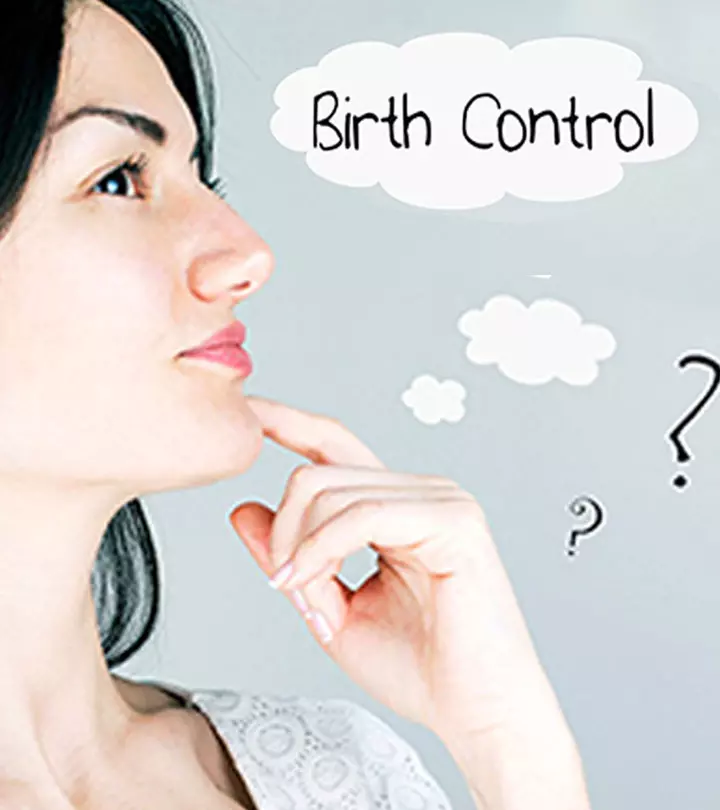

Image: Shutterstock
In the United States, some Republican politicians have been promoting the sale of over the counter (OTC) birth control in stores. Some may think it’s convenient and helpful, and some may think it’s unnecessary. We are here to talk about the information you need to know- the good and the bad.

PROS
1. Professionals Say Yes:
The American College of Obstetricians and Gynecologists say that over-the-counter birth control is a positive thing because around 50% of all pregnancies are unplanned, and ready access to contraception can help curb an accidental pregnancy. The ACOG says that opting for contraceptives does not pose any health risks. So, consulting your doctor for a prescription isn’t vital.
2. Justice Groups Also Say Yes:
Many reproductive rights and reproductive justice groups support OTC birth control because they think better access results in a decrease in unwanted/unplanned pregnancies. They say it’s helpful for people of color, immigrants, and the poor who sometimes don’t have access to contraceptives and doctors. Kirsten Moore, president and CEO of the Reproductive Health Technologies Project says, “It’s taking the Pill or not taking the Pill and risking becoming pregnant.”
The National Latina Institute for Reproductive Health agrees, as it states, “The recommendation that birth control be available over the counter supports what we know about Latinas and contraception: over-the-counter access will greatly reduce the systemic barriers, like poverty, immigration status, and language, that currently prevent Latinas from regularly accessing birth control and results in higher rates of unintended pregnancy.”
3. Are Annual Exams Necessary?
OTC birth pills means an annual exam is less necessary. Medical professionals claim that you need to undergo a pap smear once in every 3 years ONLY if you don’t have risk factors, or a genetic predisposition to cervical cancer. The same applies to your breast exams.
CONS
1. Limitation Of Contraceptives:
OTC birth control is otherwise known as just hormonal contraception, which is typically the birth control pill. After all, it is impossible for a pharmacist to insert an IUD into your body. Yes, the pill is convenient, but you may be missing out on other forms of contraception that can suit you better.
2. Increase In Cost:
Prescription drugs are subsidised by insurance companies, which means customers are left with a small amount to pay, so buying them over the counter means you have to spend more. Birth control pills are costly because the Affordable Care Act enables people with insurance to apply for no-copay birth control. The process would reduce your expenses, but with OTC options, the provision doesn’t apply.
3. Decrease In Annual Exams:
The need to take a yearly exam to renew a prescription decreases, which doesn’t bode well for some people. People against OTCs wonder how a patient, possibly of a young age, can choose the right type of birth control pill. It has to suit your body because each woman is different. So without a doctor’s help, this can leave you confused and gives you a scary and huge responsibility.
4. Possible Increase In Pregnancy:
There may be a small chance of unintended pregnancy because the pill may not suit everyone. Studies conclude that long-lasting and reversible birth control methods are the most effective ways of avoiding pregnancy. Apart from the 3% chance of failure, the pill will not work if you forget to have it one day, or sometimes even if you combine it with other medications, especially if you fall ill. It can easily lead to a pregnancy.
We hope this information helped you if you want to turn over the counter birth control pills. We are not saying OTC is better or worse than another option; we are merely stating facts and opinions. Share your opinion with us. Leave a comment.
Community Experiences
Join the conversation and become a part of our nurturing community! Share your stories, experiences, and insights to connect with fellow parents.












